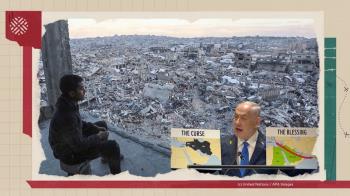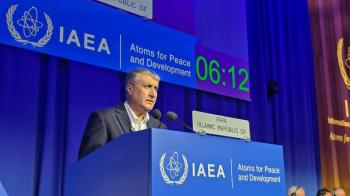Alwaght- Now that all of the political and military trump cards have ended on the ground, it appears that the Saudi war on Yemen is taking an economic face. On September 18, the Riyadh-based resigned Yemeni President Abd Rabbuh Mansour Hadi in self-exile sent a presidential order in which he dismissed the administration of Central Bank of Yemen and appointed a new one and at the same time relocated the bank from the capital Sana’a to Aden, the interim capital for the internationally-recognized government of Yemen.
As for the battlefield and politics, the step by Mansour Hadi has faced Yemeni reactions. The governor of Central Bank of Yemen Mohammad Awad bin Hamamm and his deputy Mohammad Ahmad al-Siani, and other Yemeni banks chiefs have promised to continue working to boost the trust in the country’s banking sector. At the same time, Sayyed Abdul-Malik al-Houthi, the secretary general of Ansarullah movement, a key party in the Yemeni revolution, has commented on the move by Mansour Hadi, saying that the decision came with an American direction despite the fact that the central bank kept its neutrality during the war. Ansarullah chief has said that he was sure that the Yemeni people had the potentials to face both the military and economic challenges at the same time.
The decision is an adventure, as it was described by many economists, because it jeopardizes income sources of 1.2 million government employees majorly based in the northern provinces, as it at the same time can subject the whole of the already-suffering Yemen economic to collapse. The decision is challenged by many questions about its constitutionality, as there are questions about the reasons behind it. The experts also talk about hurdles ahead of its implementation in the shadow of an array of challenges it is facing.
Legal aspect
Of course the damages of Mansour Hadi's decision will not be limited to just one class of the society or part of the economy. The Sana’a-based Central Bank of Yemen was paying all of the salaries across the country regularly without discrimination, just unlike what it will be seen in the upcoming days under the Aden-based central bank. Constitutionally, moving the Yemeni central bank to Aden and dismissing its administration are illegal for the following reasons:
First, the article 4 of law number14 that was adopted in 2000 ruled that the Central Bank of Yemen must be based in Sana’a the capital for easy activity inside and outside of the country.
Second, the article 10 of the same law decrees that the governor of the central bank and the whole administration must be appointed according to a presidential order but with a candidacy from the cabinet. Having in mind that the cabinet of Ahmed Obeid bin Daghr, the prime minister in exile, hasn’t yet received approval from the Yemeni parliament, the decision to relocate the central bank is unconstitutional.
Third, the article 11 reads it is disallowed that somebody is picked as member of the central bank’s administration or keeps being part of the body of the administration while he is member in the cabinet, or the parliament, or even a state employee, excluding employees of the finance ministry. This law was disregarded by Mansour Hadi as he picked 7 members for the central bank’s administration while all of them are state employees.
Fourth, the decision violates item 4 of article 10 of the central bank’s law which reads that it is disallowed to dismiss the central bank governor or his deputy or any member of the administration from their posts for reasons other than those given by the article. Hadi’s dismissal decision is not covered by any condition necessary to remove the governor of the Central Bank of Yemen. At the same time, the administration has not yet ended its term.
Motivations of the decision
Concerning the reasons pushing such a decision by the resigned president, it can be said that the decision is sort of a sign showing that there is no political solution and agreement in sight for the crisis. It is also a way to end the Saudi-led aggression in a style favored by Riyadh as it sees the conditions by no way are going in its favor. The US presidential election is only three months away. If Saudi Arabia fails to settle its border disputes with Yemen, it will need another year until the new American administration takes office. As a result, Kerry’s peace proposal will fail.
After failure of all of the political and military choices and opening new fronts inside south Saudi Arabia by the Yemeni forces, the Saudi-backed decision of central bank relocation has come to turn everything on its head and so add to the Yemeni people’s plights. Actually, Mansour Hadi presented no guarantees about paying salaries of all of the state employees, something that will put all of the employees that are against him under pressures and blackmailing.
Additionally, putting strains on Ansarullah and the General People’s Congress, also a key party in the conflict, is another motivation of the relocation decision. After Saudi Arabia tried to encircle the Yemenis out of borders, it is trying to press them economically, this time from inside.
Implementation possibility
But the significant question that presents itself is about implementablity of the order in the shadow of a set of security and economic challenges. Many have expressed concerns about the possible consequences that could follow the decision.
In terms of security, the conditions are still unstable in Aden in south that has become a hotbed for ISIS and Al-Qaeda terrorist groups, something threatening any moves for changing place of the central bank. There are a couple of scenarios due to poor security conditions. Once the separatists, who pushed the northern Yemenis from Aden, seize control of the bank, they will deprive employees in other parts of the country of their salaries. The second scenario, that is very likely, is the central bank being robbed by the terrorist groups of ISIS and Al-Qaeda, as Al-Qaeda did in Al Mukalla, a sea port and capital city of Hadhramaut region in south, or ISIS terrorist group that stole $400 million from banks in Mosul, Iraq after capture. The money was enough to recruit thousands of fighters and so seize full control of the city.
Economically, the decision of Mansour Hadi will face many challenges, the very most blatant of them is lack of income sources as the country stopped oil and gas exports, two sources of income that Yemen relies on them by 70 percent. Due to shortage of essential food like grain that ceased entering the country because of all-out Saudi blockade, the UN has said that many regions in the country are moving closer to famine as the food reserves are ending.
Finally, aside from the constitutionality of the decision to remove the central bank from the Yemeni capital and its reasons and the security and economic challenges it faces, the Central Bank of Yemen during more than 18 months of the Saudi-led war has managed to fulfill commitments, but with his decision Mansour Hadi has shouldered the responsibility to pay for the state employees. Will he fulfill his illegal commitments that he imposed on himself? The answer will be given as the time goes by.



























